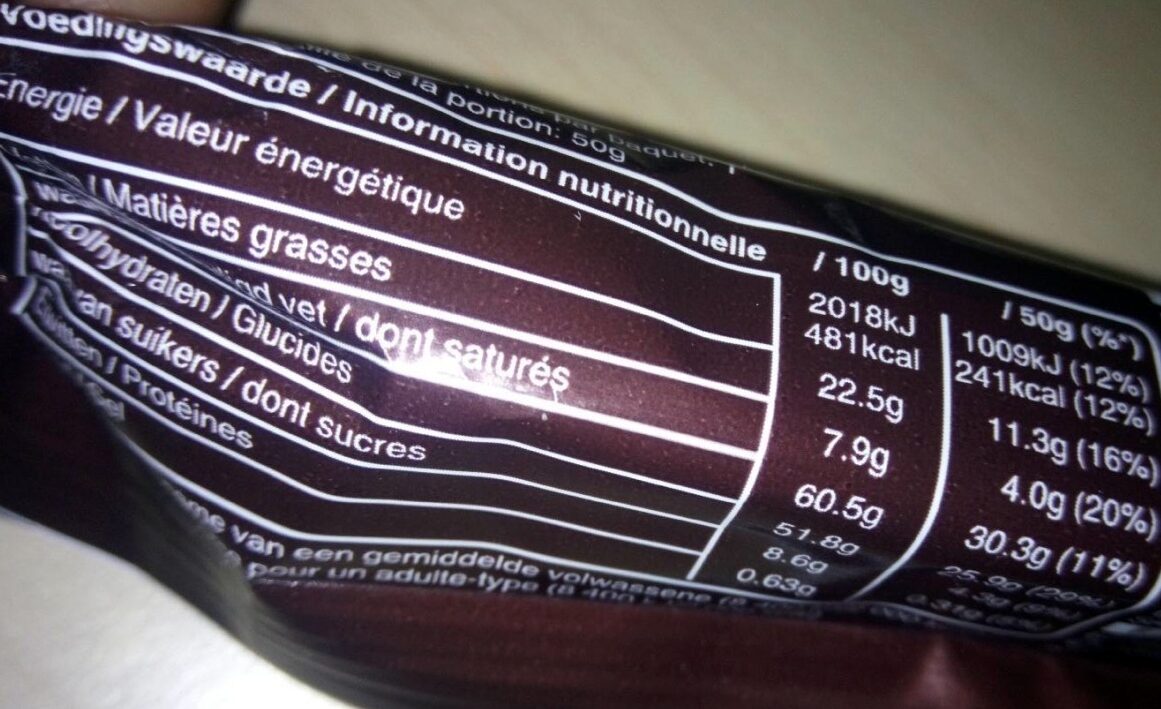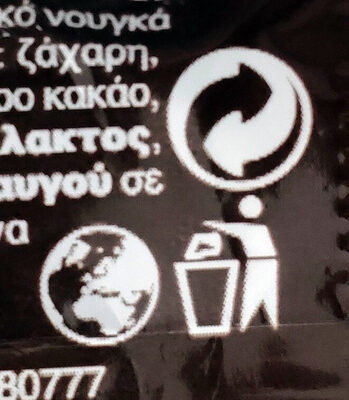Milk chocolate with soft nougat and caramel centre with fresh roasted peanuts - Snickers - 50 g
This product page is not complete. You can help to complete it by editing it and adding more data from the photos we have, or by taking more photos using the app for Android or iPhone/iPad. Thank you!
×
Barcode: 5000159461122 (EAN / EAN-13)
Κοινό/Γενικό όνομα: Milk chocolate with soft nougat and caramel centre with fresh roasted peanuts
Ποσότητα: 50 g
Συσκευασία: Πλαστικό, en:Wrapper
Μάρκες: Snickers
Κατηγορίες: en:Snacks, en:Sweet snacks, en:Cocoa and its products, en:Confectioneries, en:Bars, en:Chocolate candies, en:Candy chocolate bars, en:Caramel chocolate bars, en:Chocolate confectionery with dairy filling
Ετικέτες, πιστοποιητικά, βραβεία:
en:Green Dot, Tidy man
Χώρες όπου πωλείται: Αλγερία, Βέλγιο, Βουλγαρία, Κύπρος, Δανία, Γαλλία, Γερμανία, Ουγγαρία, Λουξεμβούργο, Μεξικό, Μαρόκο, Ολλανδία, Πολωνία, Πορτογαλία, Ρουμανία, Σαουδική Αραβία, Σερβία, Σιγκαπούρη, Ισπανία, Σουηδία, Ελβετία, Ηνωμένο Βασίλειο, Ηνωμένες Πολιτείες Αμερικής
Matching with your preferences
Report a problem
Data sources
Προϊόν προστέθηκε το από/για teolemon
Last edit of product page on από/για october-food-facts.
Product page also edited by akitainu, aleene, alia, alwaysfurther, anticultist, arc2, bcd4e6, beniben, biba-ben, charlesnepote, date-limite-app, deid2, desan, duhowpi, ecoscore-impact-estimator, emmarawr, enesey, fantamagier, feeling, foodless, foodrepo, foodvisor, g123k, gavingt, gyrostat, halal-app-chakib, hungergames, huxhux, inf, insectproductadd, jmarchepro, jumati, kiliweb, kvliegen, macrofactor, madaawadh, mathias, moe-aswad, musarana, naeneo, nermeenreda, openfood-ch-import, openfoodfacts-contributors, openfoodfactsmx, packbot, prepperapp, quentinbrd, roto, scanbot, sebleouf, securita, seppl, sil, swipe-studio, tacite, tacite-mass-editor, thaialagata, twad, vaporous, youpidai, yuka.R0prYk5aUWMrZkpXdk5nVit4Q0U0ZXBubkk2WlpFZXlldUV0SVE9PQ, yuka.UnZzZE5LSmEvUEpicHRodTR4ZlJ4TTlrK0lPTFQyZUZDdkV4SVE9PQ, yuka.Wllva0t2OGF1L29YaXNFR293bnFwODFvbDYraVZrNkxkZGNzSVE9PQ, yuka.YlBnNElJY2xuOUEwc013K3BqVHNwb2xPd1lTd1UxbTZBZG9LSWc9PQ, yuka.ZDZRYVNiUWtvTWd6b2M4VThBdnUrZE12bDRDb1VXK1NkdHRMSVE9PQ, yuka.ZUxJREM2b2xxdU1ncDhjT3h5bnVvKzkyNk1XbFhGUHZHZVJJSUE9PQ, yuka.sY2b0xO6T85zoF3NwEKvlhRGadGEoGjHDgHjwWmExPGMc43Gf9JJ4dbcKag, yukafix, zixianglim, zoneblockscommunity.










